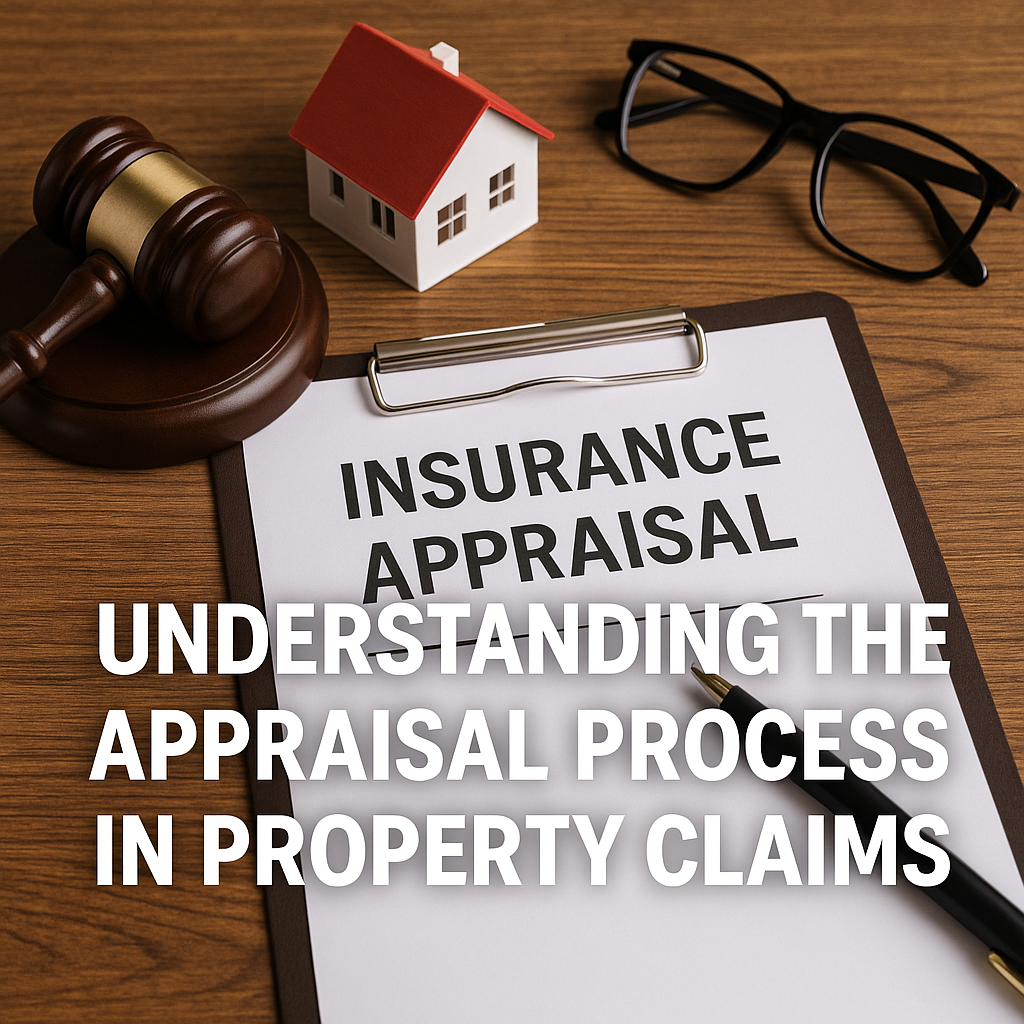An insurance appraisal is a process outlined in many Texas property insurance policies to resolve disputes over the amount of loss. It involves each party selecting an independent appraiser to assess the damage. If the appraisers cannot agree, they appoint an impartial umpire to make a binding decision. This process is governed by the terms specified in the insurance policy and is recognized under Texas law.
When Should You Consider an Appraisal?
You might consider invoking the appraisal clause in situations such as:
- Disagreement on Repair Costs: When you and your insurer cannot agree on the cost to repair or replace damaged property.
- Dispute Over Damage Extent: If there’s a significant difference in opinion about the extent of the damage.
- Stalemate in Negotiations: When negotiations have stalled, and both parties are unable to reach a consensus on the amount of loss.
It’s important to note that the appraisal process is not suitable for disputes over policy coverage or legal interpretations.
How Does the Appraisal Process Work?
The appraisal process typically follows these steps:cooperscully.com+1claimsmate.com+1
- Written Demand: Either party can initiate the process by making a written demand for appraisal, as specified in the insurance policy.
- Selection of Appraisers: Both you and the insurance company select independent and competent appraisers.
- Appraisers Evaluate Loss: Each appraiser independently assesses the damage and determines the value of the loss.
- Agreement or Umpire Involvement: If the appraisers agree on the amount, that value is binding. If they disagree, they appoint an impartial umpire to make the final decision.
- Final Decision: A decision agreed upon by any two of the three (the two appraisers and the umpire) sets the amount of the loss and is binding on both parties.
Each party pays for its own appraiser and shares the cost of the umpire equally.
How to Choose a Fair Appraiser
Selecting the right appraiser is crucial for a fair outcome. Consider the following:
- Experience: Choose someone with experience in property damage assessment and familiarity with the appraisal process.
- Independence: Ensure the appraiser is impartial and has no conflicts of interest.
- Qualifications: Look for appraisers with relevant certifications or licenses in property appraisal or adjusting.
- Reputation: Seek recommendations or reviews to find appraisers with a reputation for fairness and professionalism.
It’s advisable to interview potential appraisers to assess their suitability for your specific situation.
Pros and Cons of the Appraisal Process
Pros:
- Efficiency: Often faster than litigation, leading to quicker resolution.
- Cost-Effective: Generally less expensive than court proceedings.
- Binding Decision: Provides a definitive resolution to the dispute.
Cons:
- Limited Scope: Only addresses the amount of loss, not coverage
- Costs: Each party bears the cost of their appraiser and shares the umpire’s fee.
- Finality: The decision is binding, with limited avenues for appeal.
Next Steps: What Should You Do?
If you’re considering the appraisal process:
- Review Your Policy: Understand the appraisal clause and any specific requirements.
- Consult an Attorney: Seek legal advice to assess the suitability of appraisal for your dispute.
- Select a Qualified Appraiser: Choose an experienced and impartial appraiser to represent your interests.
- Prepare Documentation: Gather all relevant evidence, including estimates, photographs, and reports, to support your position.
- Communicate Clearly: Maintain open and clear communication with all parties involved throughout the process.
Need Assistance with an Insurance Appraisal?
If you’re facing a dispute over a property insurance claim and are considering the appraisal process, contact The Woodlands Law Firm at (832) 626-0116 or schedule a free consultation at https://link.woodlands.law/book. Our experienced attorneys can guide you through the process and help protect your interests.

Leave a Reply